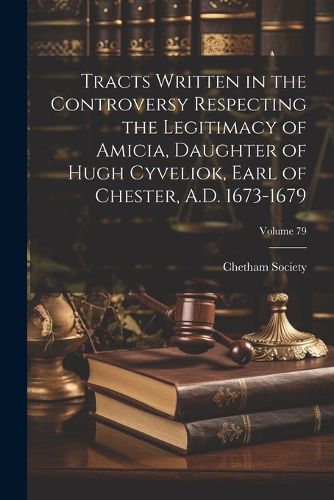Readings Newsletter
Become a Readings Member to make your shopping experience even easier.
Sign in or sign up for free!
You’re not far away from qualifying for FREE standard shipping within Australia
You’ve qualified for FREE standard shipping within Australia
The cart is loading…






First published in the 19th century, this series of tracts sheds light on a fascinating legal controversy surrounding the legitimacy of Amicia, daughter of Hugh Cyveliok, Earl of Chester. Edited by the Chetham Society, this book features primary sources, legal arguments, and other material related to the case, making it an invaluable resource for legal historians and scholars of medieval English history.
This work has been selected by scholars as being culturally important, and is part of the knowledge base of civilization as we know it.
This work is in the "public domain in the United States of America, and possibly other nations. Within the United States, you may freely copy and distribute this work, as no entity (individual or corporate) has a copyright on the body of the work.
Scholars believe, and we concur, that this work is important enough to be preserved, reproduced, and made generally available to the public. We appreciate your support of the preservation process, and thank you for being an important part of keeping this knowledge alive and relevant.
$9.00 standard shipping within Australia
FREE standard shipping within Australia for orders over $100.00
Express & International shipping calculated at checkout
First published in the 19th century, this series of tracts sheds light on a fascinating legal controversy surrounding the legitimacy of Amicia, daughter of Hugh Cyveliok, Earl of Chester. Edited by the Chetham Society, this book features primary sources, legal arguments, and other material related to the case, making it an invaluable resource for legal historians and scholars of medieval English history.
This work has been selected by scholars as being culturally important, and is part of the knowledge base of civilization as we know it.
This work is in the "public domain in the United States of America, and possibly other nations. Within the United States, you may freely copy and distribute this work, as no entity (individual or corporate) has a copyright on the body of the work.
Scholars believe, and we concur, that this work is important enough to be preserved, reproduced, and made generally available to the public. We appreciate your support of the preservation process, and thank you for being an important part of keeping this knowledge alive and relevant.